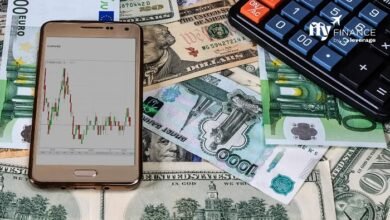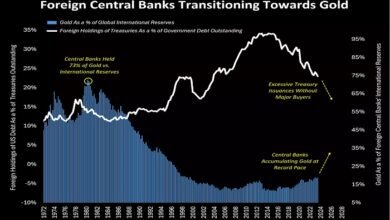Factors That Affect Currency Exchange Rates Among Countries

Introduction
Currency exchange rates are crucial for international trade, investment, and travel. Understanding the three main factors that affect currency exchange rates among countries is essential for anyone engaged in global economic activities. This guide will delve into these factors, providing a comprehensive understanding of how they shape the forex market.
The Importance of Currency Exchange Rates
Currency exchange rates determine how much one country’s currency is worth in terms of another’s. This exchange rate is vital for importing and exporting goods, investing in foreign assets, and traveling. The three main factors that affect currency exchange rates among countries play a significant role in shaping these values and, consequently, the global economy.
Inflation Rates
One of the three main factors that affect currency exchange rates among countries is inflation. Inflation measures how much prices for goods and services rise over time. Countries with lower inflation rates tend to see an appreciation in their currency value compared to those with higher inflation rates. This is because low inflation usually indicates a stable economy, which attracts foreign investment.
How Inflation Affects Currency Value
Inflation impacts purchasing power. When a country experiences high inflation, its currency’s value decreases because its purchasing power diminishes relative to other currencies. Conversely, low inflation strengthens a currency as it maintains its purchasing power over time. Thus, inflation is one of the three main factors that affect currency exchange rates among countries by influencing investor confidence and economic stability.
Interest Rates
Interest rates are another of the three main factors that affect currency exchange rates among countries. Central banks set interest rates to control monetary policy, affecting the flow of capital into and out of a country. Higher interest rates offer better returns on investments in that country’s currency, attracting foreign capital and causing the currency to appreciate.
The Relationship Between Interest Rates and Currency Exchange
When a country raises its interest rates, it often leads to an appreciation of its currency. This is because higher interest rates provide higher returns to investors, making the country’s financial assets more attractive. Conversely, lower interest rates can lead to depreciation as investors seek higher returns elsewhere. Therefore, interest rates are crucial among the three main factors that affect currency exchange rates among countries.
Political Stability and Economic Performance
Political stability and economic performance are the third of the three main factors that affect currency exchange rates among countries. Investors prefer to invest in countries with stable governments and robust economies. Political turmoil or poor economic performance can lead to uncertainty, causing investors to pull out their investments, which depreciates the currency.
The Impact of Political Events on Currency Exchange
Political events, such as elections, government policies, and geopolitical tensions, significantly impact currency exchange rates. A stable political environment fosters investor confidence, leading to currency appreciation. On the other hand, political instability can lead to a decline in currency value. Hence, political stability and economic performance are among the three main factors that affect currency exchange rates among countries.
Interplay of the Three Main Factors
The three main factors that affect currency exchange rates among countries—inflation, interest rates, and political stability—often interact with each other. For instance, a country with low inflation and high political stability might see its central bank raise interest rates to control growth, leading to an appreciation of its currency. Understanding how these factors interplay can provide deeper insights into forex market movements.
Case Study: The US Dollar
Examining the US Dollar (USD) offers a practical example of how the three main factors that affect currency exchange rates among countries work in real life. The USD is influenced by the US’s low inflation rates, relatively high interest rates, and political stability. These factors have historically made the USD a strong currency, attracting global investors.
Predicting Currency Movements
While the three main factors that affect currency exchange rates among countries provide a framework for understanding currency movements, predicting exact changes remains challenging. Forex markets are also influenced by speculative trading, market sentiment, and unforeseen global events, adding layers of complexity.
Strategies for Forex Traders
Forex traders often use the three main factors that affect currency exchange rates among countries to inform their trading strategies. By analyzing inflation trends, interest rate changes, and political events, traders can make educated predictions about currency movements. This analysis helps in developing strategies to capitalize on potential forex market fluctuations.
Conclusion
The three main factors that affect currency exchange rates among countries—inflation, interest rates, and political stability—is essential for anyone involved in the global economy. These factors play a critical role in shaping the value of currencies, influencing international trade, investment, and travel. By comprehensively analyzing these factors, individuals and businesses can make more informed financial decisions.
FAQs
1. How does inflation impact currency exchange rates?
Inflation impacts currency exchange rates by affecting a currency’s purchasing power. High inflation usually leads to currency depreciation, while low inflation can result in currency appreciation.
2. Why are interest rates important in determining currency exchange rates?
Interest rates influence currency exchange rates by affecting investment returns. Higher interest rates attract foreign capital, leading to currency appreciation, while lower rates can result in currency depreciation.
3. How does political stability affect currency exchange rates?
Political stability fosters investor confidence and economic stability, leading to currency appreciation. Conversely, political instability can cause uncertainty and lead to currency depreciation.
4. Can the three main factors interact to influence currency exchange rates?
Yes, the three main factors—inflation, interest rates, and political stability—often interact. For example, a stable political environment and low inflation might lead to higher interest rates, collectively influencing currency appreciation.
5. Are there other factors that affect currency exchange rates?
While the three main factors are crucial, other factors like speculative trading, market sentiment, and global events also influence currency exchange rates, adding complexity to forex market dynamics.





